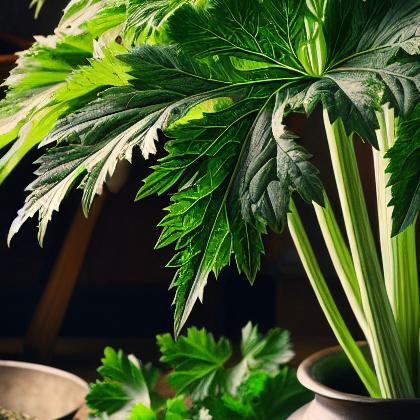Showing results for 'Angelica'
close
Angelica

Angelica is a genus of about 60 species of tall biennial and perennial herbs in the family Apiaceae, native to temperate and subarctic regions of the Northern Hemisphere, reaching as far north as Iceland and Lapland. They grow to 1–3 m tall, with large bipinnate leaves and large compound umbels of white or greenish-white flowers. Some species can be found in purple moor and rush pastures.
Angelica Properties:
| Food Property | Type | Description |
|---|---|---|
| Flavor Profile | Bitter | Angelica has a slightly bitter taste that can add depth to dishes. |
| Astringency | Angelica can have a mild astringent quality that gives a puckering sensation in the mouth. | |
| Aroma | Essential Oils | Angelica contains essential oils that contribute to its distinct aroma, which is often described as herbal and slightly earthy. |
| Nutritional Value | Micronutrients | Angelica is a good source of various micronutrients such as vitamin C, vitamin E, and magnesium. |
| Phytochemicals | Angelica contains phytochemicals such as coumarins and flavonoids, which have potential health benefits. | |
| Color | Natural Pigments | Angelica has a natural green hue due to the presence of chlorophyll and other pigments. |
| Cooking Behavior | Heat Conductivity | Angelica has average heat conductivity, which means it may require longer cooking times to soften. |
| Water Retention | Angelica tends to retain moisture well when cooked, making it suitable for braising or stewing dishes. |
Food Pairing App - Version 1.2.0
